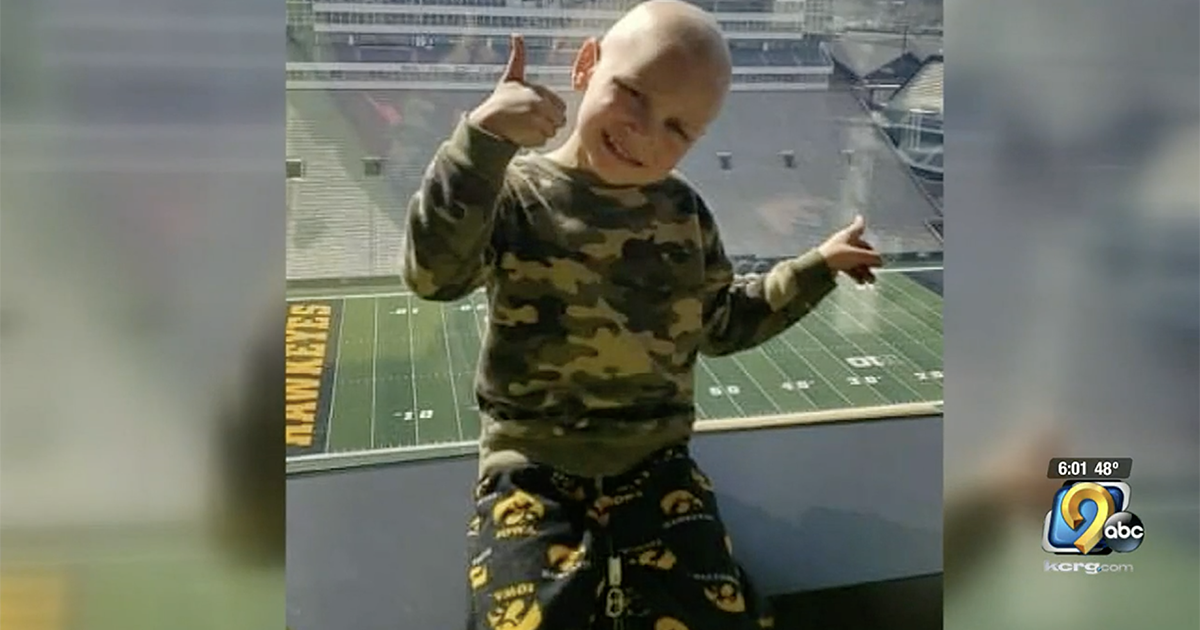How to Find Help After a Rare Cancer Diagnosis
- A 5-year-old boy from Iowa has beaten a rare cancer his doctors didn't even have a name for, highlighting the need to know where to seek help.
- SurvivorNet experts have specific guidance on ways that rare cancer patients can find helpful resources and get the help they need.
- Experts suggest people with rare cancer might require specialized evaluation. Most of the time, the most effective place to find a specialist is at academic centers and comprehensive care centers.
"They didn't have a name for it," Tessa, mother of Westyn Fisher, tells KCRG-TV in Cedar Rapids, Iowa, about her son's cancer diagnosis. "The university has never seen whatever it is he has."
Read More"One of the nice things about modern medicine is that when we don't have answers, we can reach out and try to do even more diving and research labs and things like that," Westyn's oncologist, Dr. William Terry, co-director of the Adolescent and Young Adult Cancer Program at UIHC, tells the television station.
"His tumor is still out in different labs trying to get even better answers," the doctor adds.
How to Find Help After a Rare Cancer Diagnosis
Tens of thousands of people, like Westyn, are diagnosed with rare types of cancer every year. (Most recently, fashion icon Virgil Abloh died of a rare cancer called cardiac angiosarcoma, a tumor that forms in the heart.)
People facing an uncommon diagnosis may find it difficult to find a doctor who specializes in their illness. SurvivorNet experts have specific guidance on ways that rare cancer patients can find helpful resources and take the initiative to get the help they need.
Here are some ways to find help:
Clinical Trials
Many SurvivorNet experts say that once they've exhausted all other options for treating their patients' cancer, or if they have a rare cancer, they'll recommend looking into clinical trials. How can you find active clinical trials that may be right for you? Check out clinicaltrials.gov.
Clinical Trials Can be Life-Saving for Some
This website is a database that the U.S. government maintains. It compiles privately and publicly funded clinical trials conducted around the world. It can be a particularly useful resource for cancer patients with rare conditions as a tool for finding doctors who are experts on their diseases.
Oftentimes, the most specialized doctors in a specific field end up leading clinical trials that push our understanding of diseases forward. If you know what the name of your disease is, you can search the disease name on clinicaltrials.gov and find the names of doctors leading these kinds of studies. This tool can help you identify the doctors who are best qualified to help you.
Academic Centers & Comprehensive Care Centers
For many cancer warriors, community oncology can be a great treatment resource. However, people with rare cancer might require specialized evaluation. Most of the time, the most effective place to find a specialist is at academic centers and comprehensive care centers.
Seeking Care at a Comprehensive Cancer Center
"A comprehensive cancer center is a cancer center that has been essentially vetted by the National Cancer Institute, and provides outstanding clinical care in addition to basic and translational science and research," Dr. Ted Teknos, president at University Hospitals Seidman Cancer Center in Cleveland, Ohio, tells SurvivorNet.
Across the U.S., there are only about 50 accredited comprehensive cancer centers. There are also various cancer cancers.
What's the difference between the two, you might ask? Well, an NCI-designated cancer center means that a center has met NCI standards for cancer prevention, clinical services or research, but not all three. If a facility is an NCI-designated comprehensive cancer center, that means it meets NCI standards in all three categories.
Dr. Kenneth Miller, a clinical instructor at Mount Sinai, tells SurvivorNet about what differentiates a comprehensive cancer center from other treatment providers, like community medicine.
"Pretty much automatically, there's going to be a team approach (to your care)," Dr. Miller says. "Surgical oncology, medical oncology, radiation oncology and all the support services and also wonderful pathology and radiology." Dr. Miller explains that at a comprehensive cancer center, all of these different specialists work together to help you find the best treatment.
"We call it a tumor board a group to go through all the details of your case … so you get a group of very smart people coming up with a plan together that is hopefully optimal and gives you the best chance of doing well."
Contributing: Joe Kerwin
Learn more about SurvivorNet's rigorous medical review process.


